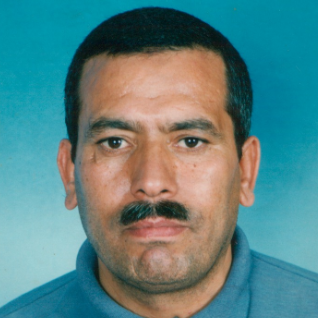
Salah LEULMI
Work place: Department of Electric Power Engineering, Skikda Electric Power Systems Laboratory, University of August 20th, 1955, Skikda, Algeria
E-mail: salah.leulmi@yahoo.fr
Website:
Research Interests: Engineering
Biography
Salah Leulmi, born in 1951 in Algeria, , received the State Engineer Degree in Electric Power Systems Engineering from the Algiers National Polytechnic School in 1976, Algeria, a Master Degree of Engineering from RPI, Troy, NY, USA in Electric Power Systems Engineering in 1978 and a Ph.D. in Electrical Engineering from ISU, Ames, IA, USA in 1983. He is the author of around 50 publications in journals & proceedings. He was the Head "Director" of the University of August 20th, 1955, Skikda, Algeria. From 1992 to 2010, he was the President of the Scientific Council of the Faculty of Science & Technology at the same University. He is a Professor since 1988 up to now. Prof. S. Leulmi is, also, a referee of 4 Algerian Journals & some Proceedings & one overseas society "WSEAS" for Proceedings & Journals. Since 1992 up to now, he is the President of the NSC of the Equivalency Degrees, since 1992 to 2015.
Author Articles
Review, Design, Optimization and Stability Analysis of Fractional-Order PID Controller
By Ammar Soukkou M.C. BELHOUR Salah LEULMI
DOI: https://doi.org/10.5815/ijisa.2016.07.08, Pub. Date: 8 Jul. 2016
This paper will establish the importance and significance of studying the fractional-order control of nonlinear dynamical systems. The foundation and the sources related to this research scope is going to be set. Then, the paper incorporates a brief overview on how this study is performed and present the organization of this study. The present work investigates the effectiveness of the physical-fractional and biological-genetic operators to develop an Optimal Form of Fractional-order PID Controller (O2Fo-PIDC). The newly developed Fo-PIDC with optimal structure and parameters can, also, improve the performances required in the modeling and control of modern manufacturing-industrial process (MIP). The synthesis methodology of the proposed O2Fo-PIDC can be viewed as a multi-level design approach. The hierarchical Multiobjective genetic algorithm (MGA), adopted in this work, can be visualized as a combination of structural and parametric genes of a controller orchestrated in a hierarchical fashion. Then, it is applied to select an optimal structure and knowledge base of the developed fractional controller to satisfy the various design specification contradictories (simplicity, accuracy, stability and robustness).
[...] Read more.Other Articles
Subscribe to receive issue release notifications and newsletters from MECS Press journals